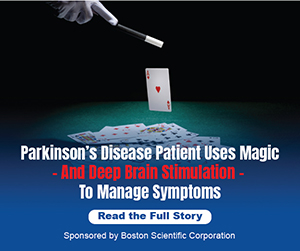
Photo: Deposit Photos
Music has the power to uplift our spirits, whether we are going through good times or bad times. Regardless of our age, music can stimulate strong feelings and emotions. It should be no surprise then that music therapy has the power to help improve the lives of people in a variety of ways. Several studies conducted worldwide have shown the benefits of music therapy for seniors in particular.
Find out how music therapy works, and how it can benefit seniors.
What is music therapy?
Music therapy is a discipline in which credentialed professionals use music to support the health, well-being and development within individuals. There are many types of music therapy. Clients may be asked to listen to music and talk. Or, they might be asked to make music with instruments.
Certified music therapists (MTAs) typically provide services in healthcare, community, educational and institutional settings. MTAs are usually accomplished musicians with expert knowledge of how music can evoke emotional responses to help relax or stimulate people. Music therapy for seniors, in particular, can help them manage everything from stress to chronic pain.
The benefits of music therapy for seniors
Music therapy activities for seniors have been shown to improve their emotional, physical and cognitive well-being. Retirement communities often offer music therapy programs to help residents deal with common issues, such as stress, depression and memory impairment. Some of the many benefits of music therapy include:
Speech skills
Music therapy can help seniors make clearer decisions and speak more accurately. Music therapy slows the deterioration of language and speech skills within those who have dementia. Music therapists can help retrain individuals with speaking by using musical vocalization.
Music plays a role in the improvement of speech since it uses areas of the brain that are involved in communication.
Memory enhancement
Music therapy can sharpen a senior’s memory – it can help to process memories and keep memories active. According to Petr Janata, a cognitive neuroscientist at the University of California, music can be used as a vehicle for nostalgia and other life-affirming thoughts and emotions. He says individuals with Alzheimer’s disease remain very responsive to music from their past.
Physical skills
Music, especially fun and upbeat songs, promotes dancing. Following a song’s rhythm and beat improves one’s coordination and improves overall endurance. Even simple movements such as clapping promotes that little bit of exercise and blood flow.
Stress reduction
Music has the power to alleviate stress. A study conducted by a team at McGill University showed how listening to music can lower stress and anxiety levels. The team reviewed more than 400 research papers related to the neurochemistry of music.
The researchers found that listening to music helped reduce a patient’s stress and improved immune system function. Music was also shown to be more effective than prescription medications at reducing patient anxiety before surgery.
In retirement community settings, there may be times where caregivers have to manage a resident who may feel stressed or irritated. Playing music has proven to invoke relaxation and uplift moods.
Using music to heal & recover
In some cases, music can be more effective than traditional medicine. Researchers at the University of Helsinki found that a group of Finnish stroke survivors showed improvement after listening to music a few hours a day while recovering. The survivors showed improvement in: auditory and verbal memory, focused attention and mood.
Compared to stroke patients who listened to audiobooks or nothing at all, this group regained their verbal skills much faster. This group was also less likely to feel depressed or confused, which are common post-stroke side effects.
Another study conducted by Brunel University in the UK suggested that music can reduce pain and anxiety for individuals who have undergone surgery. The researchers discovered that individuals who listened to music after their procedure reported feeling less pain and anxiety compared to those who didn’t listen to music. They were also less likely to need pain medication.
Enjoy the powerful benefits of music
Music therapy for seniors is beneficial in many ways as it helps keep their minds and bodies active. We know that music boosts people’s spirits, but it has also been proven to improve people’s overall physical, mental and emotional well-being.
Retirement living communities provide residents with a variety of activities and services to keep them active and well. Contact your local retirement living community to learn more about what they offer.












